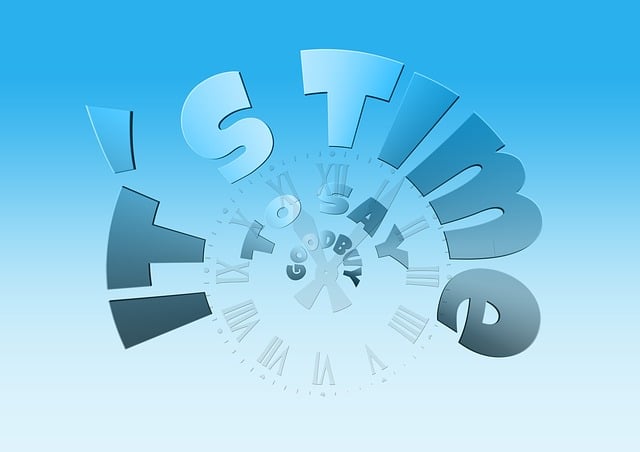Mediation for divorce settlement offers a collaborative approach using a neutral third-party mediator to help couples navigate their divorce outside of court. This method encourages open communication, addressing critical aspects like child custody, visitation rights, spousal support, and asset/debt division. Unlike litigation, mediation provides transparent pricing, removing financial barriers and allowing couples to maintain control over the process. Preparing for mediation with individual attorney sessions is vital, leading to strategic planning and fair outcomes in a predictable, emotionally supportive environment. As an alternative to traditional litigation, professional divorce mediation services successfully facilitate mutually beneficial agreements regarding child custody, spousal support, and asset division through flexible options and accessible pricing.
“Looking for a peaceful path through divorce? Professional divorce mediation services offer a collaborative approach to reaching amicable settlements. This article explores how mediation for divorce settlement can help couples navigate complex issues like child custody, spousal support, and asset division without the stress of litigation.
From understanding the process to success stories, we guide you through the benefits, roles of mediators, preparation tips, and real-world examples, empowering you to make informed choices.”
- Understanding Divorce Mediation: An Alternative to Legal Battles
- The Benefits of Professional Divorce Mediation Services
- Key Roles and Responsibilities of a Divorce Mediator
- Preparing for Mediation: What to Expect During the Process
- Navigating Complex Issues: Child Custody, Spousal Support, and Asset Division
- Success Stories: How Mediation Facilitates Amicable Divorces
Understanding Divorce Mediation: An Alternative to Legal Battles

Divorce mediation for settlement is a collaborative process where a neutral third party, known as a mediator, helps couples navigate their divorce without going to court. Unlike traditional legal battles, this alternative approach encourages open communication and mutual understanding. The mediator facilitates discussions on critical matters such as child custody, visitation rights, spousal support, and the division of assets or debts, allowing both partners to have a say in the decisions that shape their future.
In contrast to hourly billing practices common in law firms, many mediation services offer a straightforward, one-time fee structure for divorce help. This unlimited session approach ensures accessibility without financial barriers. Couples can focus on resolving issues amicably rather than spending extensive time and money on legal proceedings. Mediation provides an opportunity for couples to maintain control over the process, preserve their relationship (to the extent possible), and move forward with their lives in a more positive manner.
The Benefits of Professional Divorce Mediation Services

Professional divorce mediation services offer numerous benefits to couples navigating a difficult transition period. One of the primary advantages is the ability to reach a mutually agreeable divorce settlement without resorting to litigation, which can be both emotionally and financially draining. By engaging in mediation, spouses have a more active role in shaping their future, ensuring that their needs and desires are considered in the decision-making process.
This approach also fosters a sense of control and empowerment, leading to better outcomes for all involved parties. Moreover, professional mediators provide a neutral and supportive environment, encouraging open communication and helping couples focus on what’s best for them and their family. In terms of cost, mediation for divorce settlement often comes with transparent pricing and a predictable cost structure, contrasting with the traditional hourly billing model. This ensures financial clarity and allows couples to allocate resources effectively during this pivotal time in their lives.
Key Roles and Responsibilities of a Divorce Mediator

Divorce mediators play a pivotal role in facilitating communication and negotiation between divorcing couples. Their primary responsibility is to create a safe, structured environment where both parties can openly discuss their needs, desires, and concerns regarding child custody, spousal support, and division of assets. A mediator acts as an impartial third party, guiding the process and helping couples find mutually agreeable solutions without resorting to litigation.
In an unlimited session divorce mediation, the mediator’s key roles include actively listening to both sides, identifying underlying interests, and offering creative options for resolution. They ensure that each spouse understands their rights and obligations throughout the process, aiming for a predictable cost mediation approach where no hourly billing occurs. This structured yet flexible framework allows couples to navigate complex emotional and financial issues, ultimately reaching a fair and amicable divorce settlement.
Preparing for Mediation: What to Expect During the Process

Preparing for mediation is a crucial step in reaching a mutually beneficial divorce settlement without going to court. Couples are typically encouraged to attend individual sessions with their attorneys before the mediation, where they can discuss their specific circumstances and goals. This allows them to understand the process, anticipate potential outcomes, and develop a strategic plan.
During the mediation itself, participants can expect an environment that fosters open communication and collaboration. Mediators, neutral third parties trained in facilitating discussions, will guide the conversation, ensuring both sides feel heard. The process is designed to be predictable, with transparent pricing for divorce mediation, allowing couples to focus on resolving disputes rather than worrying about hidden costs, as seen in unlimited session divorce models.
Navigating Complex Issues: Child Custody, Spousal Support, and Asset Division

Navigating complex issues like child custody, spousal support, and asset division can be emotionally taxing and legally intricate for couples going through a divorce. Traditional litigation often exacerbates these challenges, leading to prolonged court battles and increased conflict. Professional divorce mediation services offer a more collaborative approach, enabling couples to reach amicable settlements without the adversarial atmosphere of the courtroom.
Mediation for divorce settlement provides a safe space where both parties can openly discuss their needs and concerns with the help of a trained neutral third party. This process facilitates clear communication, fosters mutual understanding, and allows for creative solutions tailored to each couple’s unique circumstances. By prioritizing collaboration over competition, mediation promotes a predictable cost structure, such as a transparent one-time fee divorce help model, ensuring financial clarity during an otherwise turbulent time.
Success Stories: How Mediation Facilitates Amicable Divorces

Many couples are finding success and peace through professional divorce mediation services. This alternative to litigation allows partners to navigate their differences in a collaborative environment, fostering open communication and mutual understanding. Mediation for divorce settlement focuses on reaching an agreement that meets both parties’ needs and interests, rather than one side prevailing over the other.
Success stories abound of couples who have successfully navigated complex issues like child custody, spousal support, and asset division through mediation. From joint decision-making arrangements that prioritize their children’s well-being to equitable distributions of assets and debts, these amicable divorces are testaments to the power of mediation. Moreover, options like unlimited session divorce, transparent pricing divorce, and one-time fee divorce help ensure accessibility and affordability for couples seeking a peaceful resolution.
